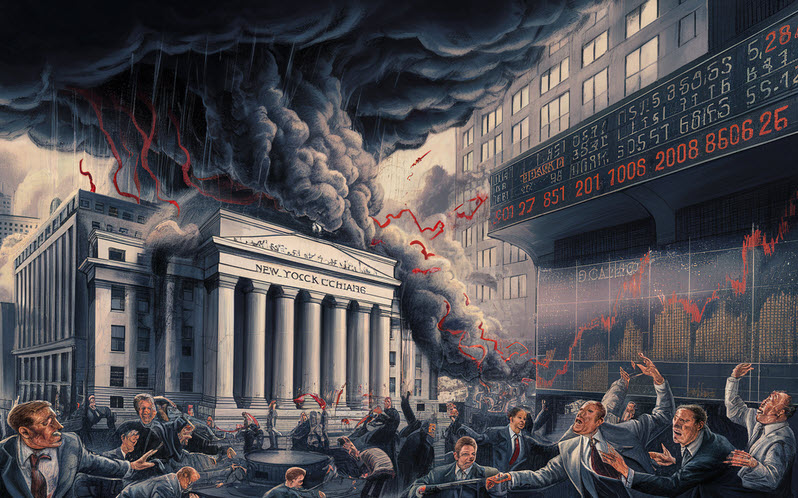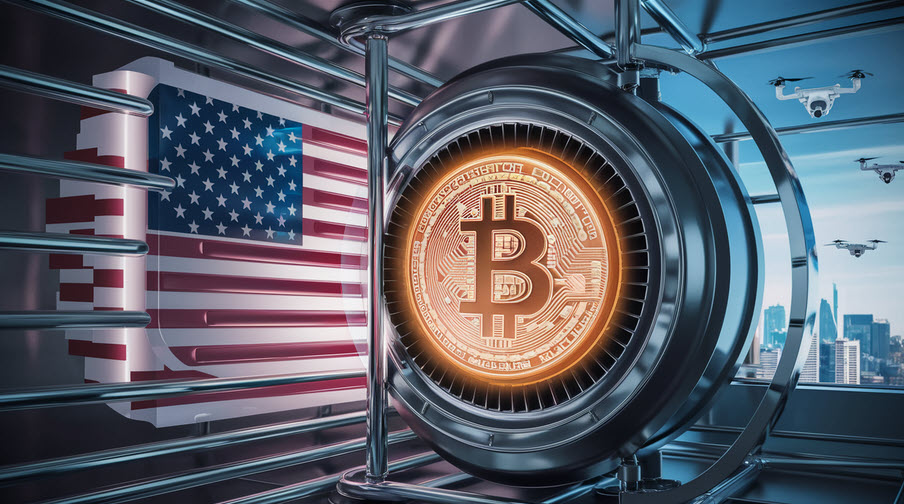The Unlikelihood of a US Bitcoin Reserve Asset
Hello, curious minds! Today, we’re exploring a fascinating topic: the possibility of the United States adopting Bitcoin as a reserve asset. This idea sounds exciting, but it’s not as simple as it might seem. Let’s dive into the world of Bitcoin and the traditional debt system to understand why this is unlikely to happen.
Bitcoin vs. Debt System
Bitcoin is a decentralized digital currency, meaning it’s not controlled by any single entity, such as a government or a bank. It’s based on blockchain technology, which is like a digital ledger that records all transactions. This makes Bitcoin transparent and secure.
On the other hand, the current financial system in the US is debt-based. This means the government borrows money to fund its activities and pays it back with interest. The Federal Reserve, the central bank of the US, plays a crucial role in this system. It controls the money supply and interest rates, aiming to keep the economy stable.
Why the US Won’t Hold Bitcoin as a Reserve Asset
- Control and Transparency: The Federal Reserve and the US government prefer systems they can control. Bitcoin’s transparency and decentralization make it difficult for them to manage. They can’t manipulate Bitcoin the way they can with traditional currency.
- Debt System Reliance: The US financial system relies heavily on debt. The government borrows money by issuing bonds and other debt instruments. This system has been in place for over a century. Moving to Bitcoin would disrupt this deeply ingrained system, causing significant upheaval.
- Regulation Challenges: Bitcoin is still relatively new and not as widely regulated as traditional financial assets. The lack of control and the potential for volatility make it a risky choice for a national reserve asset.
- Economic Stability: The Federal Reserve’s primary goal is to maintain economic stability. Bitcoin’s value can fluctuate wildly, which could threaten this stability. For example, if the value of Bitcoin were to crash, it could have severe consequences for the national economy.
One example that highlights how systems controlled by the Federal Reserve and the U.S. government can be unfair to citizens is the response to the 2008 financial crisis

During the 2008 financial crisis, the Federal Reserve and the U.S. government took significant measures to stabilize the financial system. They bailed out large banks and financial institutions deemed “too big to fail” through the Troubled Asset Relief Program (TARP). While this helped prevent a total collapse of the financial system, it led to several unfair outcomes for ordinary citizens:
- Bailouts for Banks, Not for People: The largest financial institutions received substantial financial support, but many ordinary citizens faced foreclosures, job losses, and reduced economic opportunities without similar direct assistance.
- Wealth Inequality: The quantitative easing policies, which involved the Fed injecting large amounts of money into the financial system, primarily benefited those who owned financial assets, such as stocks and bonds. This led to increased wealth inequality as the value of these assets surged, benefiting the wealthy disproportionately.
- Moral Hazard: The bailouts created a moral hazard where large institutions took excessive risks, knowing they might be bailed out if things went wrong. This can lead to more reckless behavior in the future, ultimately putting the broader economy and average citizens at risk.
- Low-Interest Rates: The prolonged period of low-interest rates following the crisis was intended to stimulate the economy but also made it harder for savers, particularly retirees, to earn a reasonable return on their savings.
Reflecting on the Future
While it’s unlikely that the US will adopt Bitcoin as a reserve asset, this doesn’t mean Bitcoin isn’t important. It represents a new way of thinking about money and finance. People and companies worldwide are already using Bitcoin for transactions and as an investment.
Bitcoin can coexist with the traditional financial system, offering an alternative for those who prefer its transparency and decentralized nature. As technology and regulations evolve, we might see more integration of Bitcoin into mainstream finance, but a complete shift to a Bitcoin reserve asset for the US remains improbable.
Conclusion
In conclusion, the idea of the US holding Bitcoin as a reserve asset is fascinating but unlikely. The control, stability, and reliance on the debt system make this a challenging proposition. However, Bitcoin’s role in the global financial landscape continues to grow, offering exciting possibilities for the future.
I would love to hear your thoughts below.
